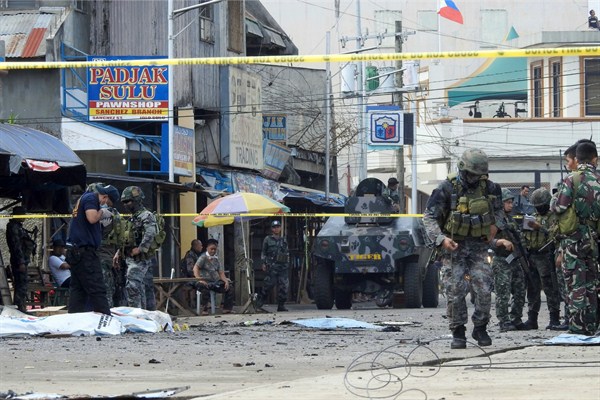Midday on June 28, a suicide bomber struck a checkpoint outside a military camp in the town of Indanan, on the restive southern Philippine island of Sulu. Moments later, a second bomb exploded. The attack killed three Philippine soldiers and three civilians, as well as the two bombers. The local military commander quickly blamed an ISIS-affiliated faction of Abu Sayyaf, the extremist group that has been active in the southern Philippines for decades.
Within hours, the Islamic State released a statement claiming responsibility for the attack, marking the second time this year it has linked itself to a twin suicide bombing in Sulu. In January, double blasts tore through a packed cathedral in the town of Jolo, not far from Indanan, killing 22 worshippers. Authorities hoped that attack was an outlier, but June’s bloodshed has reignited fears over ties between the Islamic State and an Abu Sayyaf splinter group led by Hatib Hajan Sawadjaan, a militant described by the U.S. State Department as the Islamic State’s “acting emir” in Southeast Asia and whom Philippine authorities also blamed for the cathedral bombing.
In his typically outlandish style, President Rodrigo Duterte vowed to crack down, ordering the military to “wipe Abu Sayyaf out from the face of the earth.” Such rhetoric is common from Duterte, but it has rarely made much difference on the battlefield against extremist groups. The uptick in army deployments to Sulu since the late June bombings suggests more urgency from Duterte, angered by another attack on Philippine soil by an ISIS affiliate.

